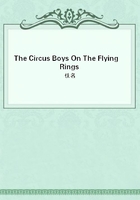First of all, it is said that the resolution of all moral approbation into sympathy really makes morality dependent on the mental constitution of each individual, and so sets up a variable standard, at the mercy of personal influences and local custom. Adam Smith says expressly indeed, that there is no other measure of moral conduct than the sympathetic approbation of each individual. "Every faculty in one man is the measure by which he judges of the like faculty iu another ;" and as he judges of other men's power of sight or hearing by reference to his own, so he judges of their love, resentment, or other moral states, by reference to his own consciousness of those several affections.
Is not this to destroy the fixed character of morality, and to deprive itas Protagoras, the Greek sophist, deprived it long ago in his similar teaching that man was the measure of all thingsof its most ennobling qualities, its eternity and immutability? Is it not to reduce the rules of morality to the level merely of the rules of etiquette? Is it not to make our standard of conduct dependent merely on the ideas and passions of those we happen to live with? Does it not justify Brown's chief objection to the system of sympathy, that it fixes morality "on a basis not sufficiently firm"?
Adam Smith's answer to this might have been, that the consideration of the basis of morality lay beyond the scope of his inquiry, and that, if he explained the principle of moral approbation by the laws of sympathy he appealed to, the facts commanded acceptance, whatever the consequences might be. He would have reasserted confidently, that no case of approbation occurred without a tacit reference to the sympathy of the approver; and that the feeling of approbation or the contrary always varied exactly with the degree of sympathy or antipathy felt for the agent. Therefore, if as a matter of fact every case of such approbation implied a reference to the feelings of the individual person approving, then those feelings were the source of moral judgment, however variable or relative morality might thus be made to appear.
He would also have denied that the consequence of his theory did really in any way weaken the basis of morality, or deprive it of its obligatory power over our conduct. The assertion of such a consequence has been perhaps the most persistent objection raised against his system. Sir James Mackintosh, for instance, makes the criticism, that "the sympathies have nothing more of an imperative character than any other emotions. They attract or repel, like other feelings, according to their intensity. If, then, the sympathies continue in mature minds to constitute the whole of conscience, it becomes utterly impossible to explain the character of command and supremacy, which is attested by the unanimous voice of mankind to belong to that faculty, and to form its essential distinction." (10) But as, of all Adam Smith's critics, Jouffroy has been the one who has urged this argument with the greatest force, it will be best to follow his reasoning, before considering the force of the objection.
According to him, no more moral authority can attach to the instinct of sympathy than can attach to any other instinct of our nature. The desire of sympathy, being simply an instinct, can have no claim to prevail over the impulses of our other instincts, whenever they happen to come into conflict, than such as is founded on its possible greater strength. For instance, the instinct of self-love often comes into conflict with, and often prevails over, the instinct of sympathy, the motive of self-interest well-understood being thus superior to our sympathetic impulses both in fact and by right. If then there is a superiority in the instinct of sympathy above all our other instincts, it must come from a judgment of reason, decisive of its title; but since such decision of reason implies a reference to some rule other and higher than instinct, our motive in preferring the inspirations of instinctive sympathy to all other impulses must be derived from this higher motive, or, in other words, from reason and not from instinct.
Hence, since the sympathetic instinct bears no signs of an authority superior to that of other instincts, there is no real authority in the motive which, according to Adam Smith, impels us to right conduct. Instead of proving that the instinct of sympathy is the true moral motive, Adam Smith describes truly and beautifully the characteristics of this moral motive, and then gratuitously attributes them to the instinct of sympathy. But he fails to apply to rules of conduct founded upon such an instinct, that which is the special characteristic of the moral motive, namely, that it alone is obligatoryalone presents us, as an end to be pursued, an end which ought to be pursued, as distinct from other ends suggested by other motives, which may be pursued or not as we please. "Among all possible motives, the moral motive alone appears to us as one that ought to govern our conduct."Jouffroy applies the same reasoning to Adam Smith's explanation of our moral ideas, those, for example, of Right and Duty . For if the motive of sympathy bears with it no authority, it is evident that it cannot explain ideas both of which imply and involve a motive of obligation.
If duty is obedience to rules of conduct that have been produced by sympathy, and these rules are only generalizations of particular judgments of instinctive sympathy, it is plain that the authority of these rules can be no greater than that of the judgments which originally gave rise to them. If it is equally a duty to obey the instinct as to obey the rules it gives rise to, it is superfluous to explain duty as a sense of the authority of these rules, seeing that it is already involved in the process of their formation.















